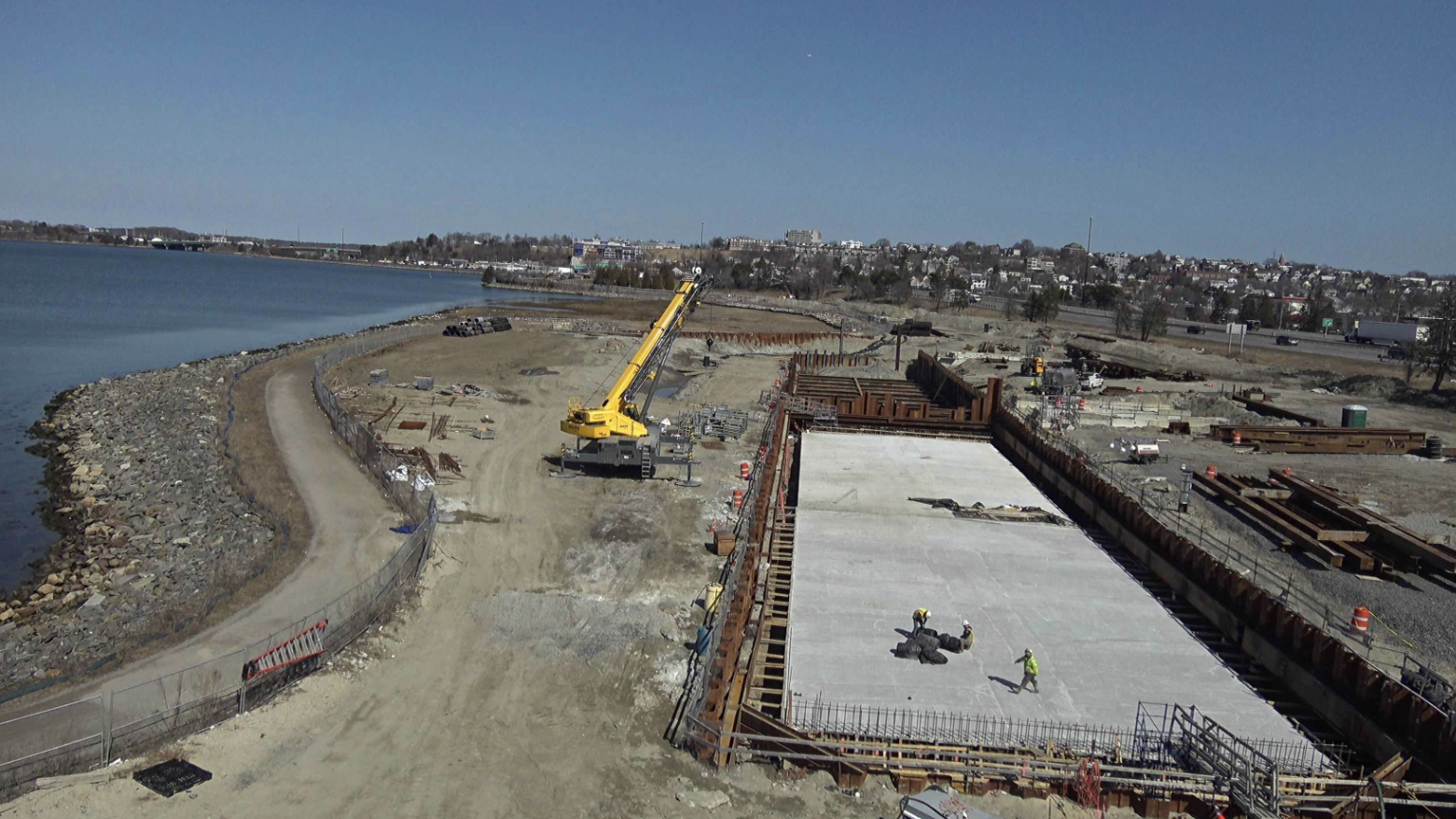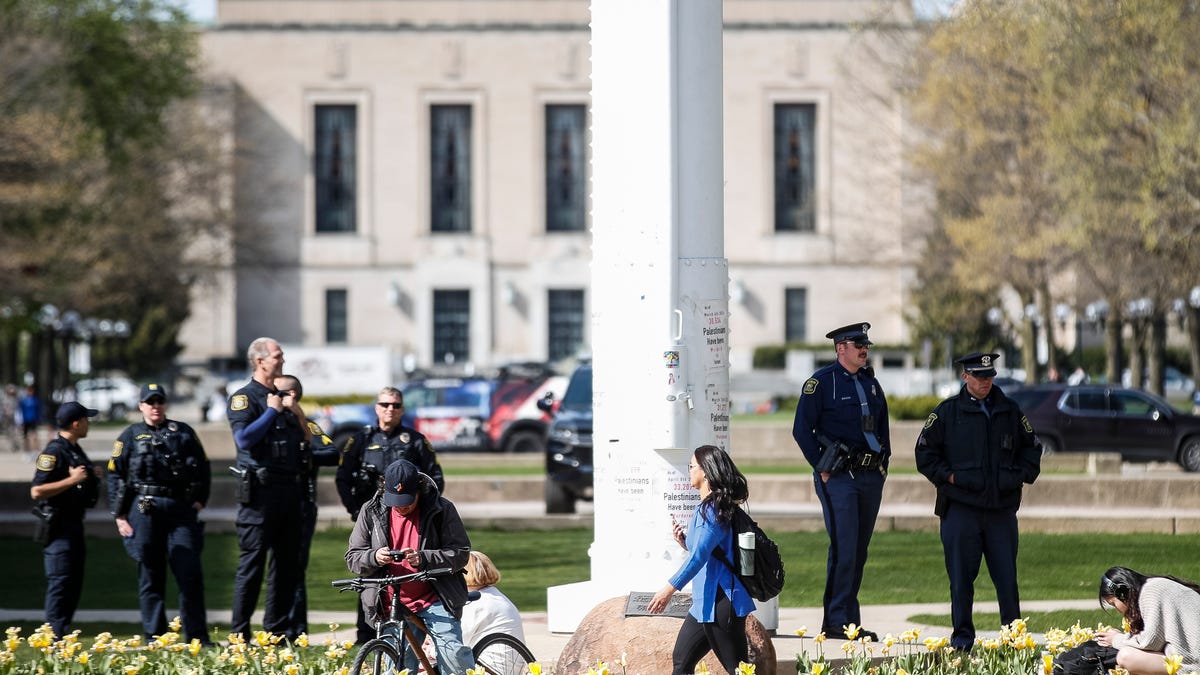World
Windfall profits rise to $1 trillion amid cost-of-living crisis: Study
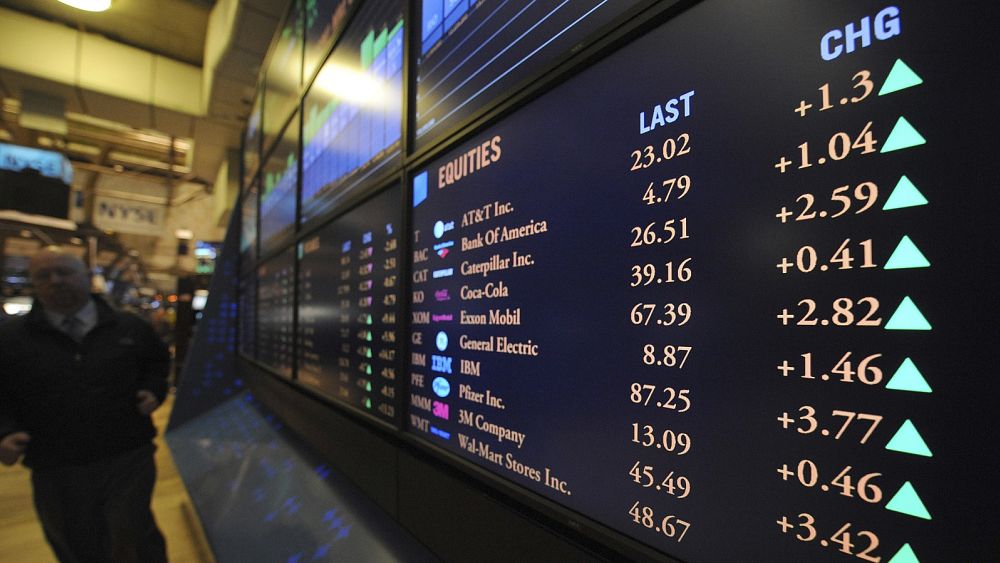
New data on the profits of the world’s largest businesses has renewed calls for permanent windfall taxes across all sectors of the economy.
A study published on Thursday by Oxfam and ActionAid reveals that 722 global corporations together made more than $1 trillion (€917 billion) a year in windfall profits in 2021 and 2022.
Of those corporations, 45 energy companies made on average €217 billion a year in windfall profits, while companies in other sectors including food and drink, banking and pharmaceuticals also saw gains surge, according to the two NGOs.
The analysis is based on Forbes’ Global 2000 ranking and defines windfall profits as those exceeding average profits in the previous four years by more than 10 percent.
Meanwhile, the two NGOs said, one billion workers across 50 countries took a $746 billion (€686 billion) real-term pay cut in 2022.
Oxfam and ActionAid are calling for a levy on excess profits that could be used to alleviate the rising costs of living and to fund development projects in the so-called Global South.
“There is an issue of unfairness, where companies are making huge windfall profits while people are struggling with their energy bills, with buying food at the supermarket. This is unacceptable,” said Chiara Putaturo, EU Inequality and Tax Policy Advisor at Oxfam.
“We saw that in some companies, 85% of all windfall profits generated in 2022 went to shareholders, feeding the pockets of already rich individuals. Top-paid CEOs across four countries enjoyed a real-term 9% pay hike in 2022, while workers’ wages fell by 3%,” she added.
According to Quentin Parrinello, Senior Policy Advisor at the EU Tax Observatory, critics’ argument that a windfall profit tax disincentives investment is not well-founded, but the design of the levy is critical.
“We’re seeing some big companies – not all – posting record profits, not because of productivity gains, not because of innovation, but because they’re able to gouge prices and inflate their margins,” he said.
“The windfall profits tax can actually incentivise investment because it’s rather money that will not go into the pockets of shareholders and be reinvested within companies.”
“To us, what matters a lot is that the design ensures we tackle the excess profit derived from price gouging rather than regular activity and return on investment,” he added.
In June, a report by the International Monetary Fund claimed almost half of the increase in Europe’s inflation over the past two years is due to rising corporate profits. European Central Bank President Christine Lagarde also said in June that corporate profits were the biggest driver of inflation in 2022 and will be again in 2023.
Last September, EU energy ministers agreed on a temporary windfall tax on fossil fuel companies benefiting from soaring energy prices. The levy, termed a ‘solidarity contribution’, is applied on profits exceeding 20 percent of a company’s average yearly profits since 2018.
While each EU member state must apply the tax, progress across countries varies with some yet to adopt the measures.
A spokesperson for the European Commission said the institution is assessing the manner in which each member state has applied the solidarity contribution or an enacted equivalent national measure, and if necessary, following up with the member state concerned to ensure full compliance with EU law.
The EU levy was met with resistance from some companies, which claimed it curtails investments in new technologies, including green technologies. Despite the mechanism, Big Oil companies made record profits in 2022.
The solidarity contribution is a temporary measure applying to 2022 and 2023 profits only. Oxfam and ActionAid are calling for a permanent tax extended to all sectors making extraordinary profits.
Portugal is the only EU country currently targeting food distribution companies. Countries such as Hungary are targeting various sectors including pharmaceutical and media companies, while Croatia’s windfall tax applies to all companies exceeding a certain revenue threshold.
According to Parrinello, more consistency is needed across member states. “Different countries implement different schemes to tackle windfall profits. Some of them are taxing sales and profits with some limitations. We need to harmonize that as much as possible.”
Oxfam and ActionAid claim a windfall profit tax could generate hundreds of billions in funds that could be diverted to tackle poverty and climate change.

World
'Show solidarity': Pro-Palestinian protesters camp across Australian universities

World
China increases aggressive moves against Taiwan as island prepares to inaugurate new president
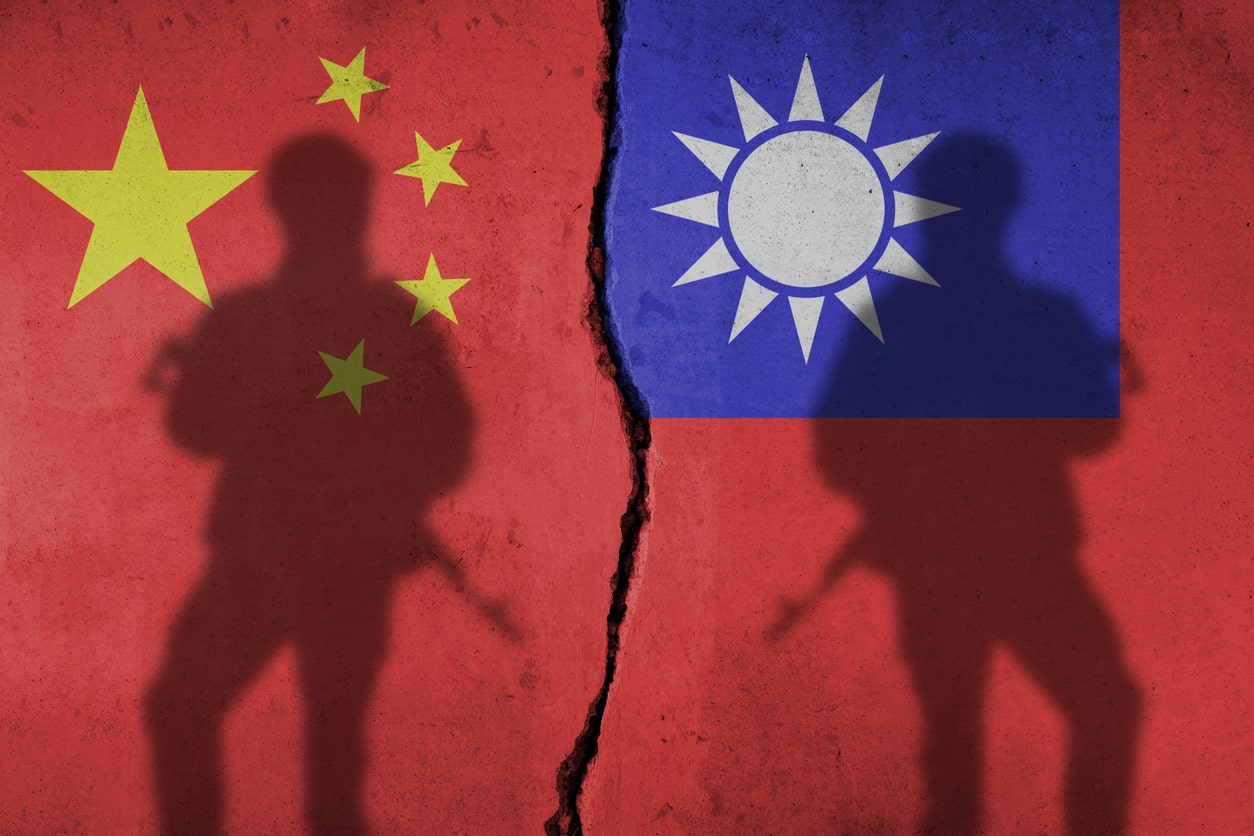
KAOHSIUNG — Virtually every day, the People’s Republic of China does something unprecedented — its coast guard briefly boarding a Taiwanese tourist boat, flying military aircraft ever closer to Taiwan or increasing harassment of Taiwanese fishing boats in the South China Sea.
“This is a problem,” says Dean Karalekas, author of “Civil-Military Relations in Taiwan: Identity and Transformation.” “Because these unprecedented actions are creating a new normal. Beijing hopes that we (the West) will sit by and watch as they take over Taiwan, just as we did when they used these same salami-slicing tactics to take over the South China Sea.”
The world began noticing more of China’s hostile actions following the visit to Taiwan by former U.S. House Speaker Nancy Pelosi in 2023, but the strategy has been in place for some time.
“China’s plan to ‘normalize’ military encroachments was planned long before Pelosi’s visit,” Taipei Times columnist and political commentator C. Donovan Smith told Fox News Digital. “The military exercises were far too complex and logistically complicated to have been planned in the short span of time between the announcement of her trip and her arrival in Taiwan.”
TAIWAN ELECTION: RULING PARTY CANDIDATE WINS TIGHTLY CONTESTED PRESIDENTIAL RACE, UPSETTING CHINA’S AMBITIONS
President-elect William Lai votes in southern Taiwan’s Tainan city Jan. 13, 2024. (AP Photo/Ng Han Guan)
Surrounding Taiwan in a mock “quarantine” and performing missile “tests” in 2023 was also intended to push Taiwanese voters toward politicians and parties more friendly to China. But, as has been the case in the last three elections here, Beijing’s ploys were ineffectual. Taiwan in January elected the incumbent vice president, William Lai, to take over from two-term President Tsai Ing-wen. Both Tsai and Lai are members of the Democratic Progressive Party (DPP).
The incoming Taiwan president has repeatedly pledged to make no changes to policies in place over the last eight years. Beijing, however, sees William Lai (Lai Ching-te) as a “splittist” and a supporter of Taiwan independence. Lai previously did voice support for independence but has tried to walk that back. China, however, does not forgive nor forget. Many political experts believe Beijing will ratchet up pressure as Lai enters office later this month.
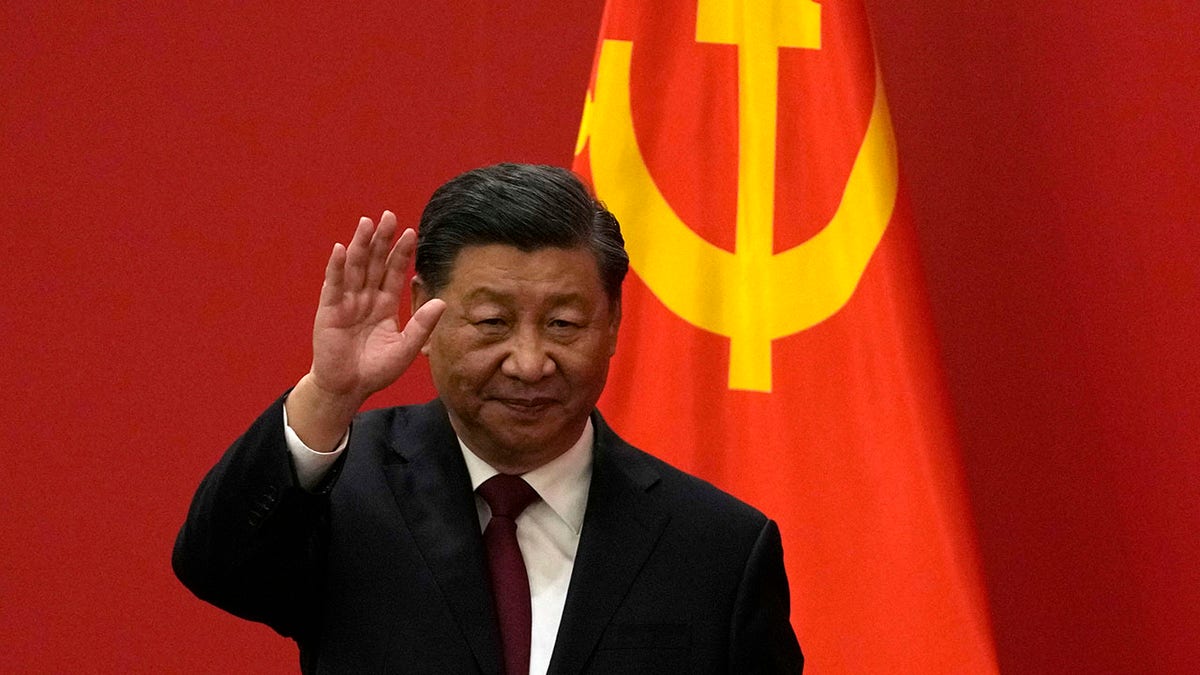
Chinese President Xi Jinping waves at an event to introduce new members of the Politburo Standing Committee at the Great Hall of the People in Beijing Oct. 23, 2022. (AP Photo/Andy Wong, File)
A recent example of China’s attempts to establish this “new normal” is changes to airspace rules. China is close to finishing a massive new airport serving Xiamen in Fujian Province. Just 6.2 miles away, however, sits the island of Kinmen, which has remained a part of the Republic of China (ROC), better known as Taiwan, since 1949.
Kinmen Airport is strategically important for Taiwan. In 2015, the two sides worked out a deal to change a flight path that was a bit too close for Taiwan’s comfort. But in February, Beijing unilaterally backed out of the deal, announcing that, from May 16, new air routes would begin operating to “further optimize airspace” around the area.
FOR CHINA’S MILITARY PLANNERS, TAIWAN IS NOT AN EASY ISLAND TO INVADE
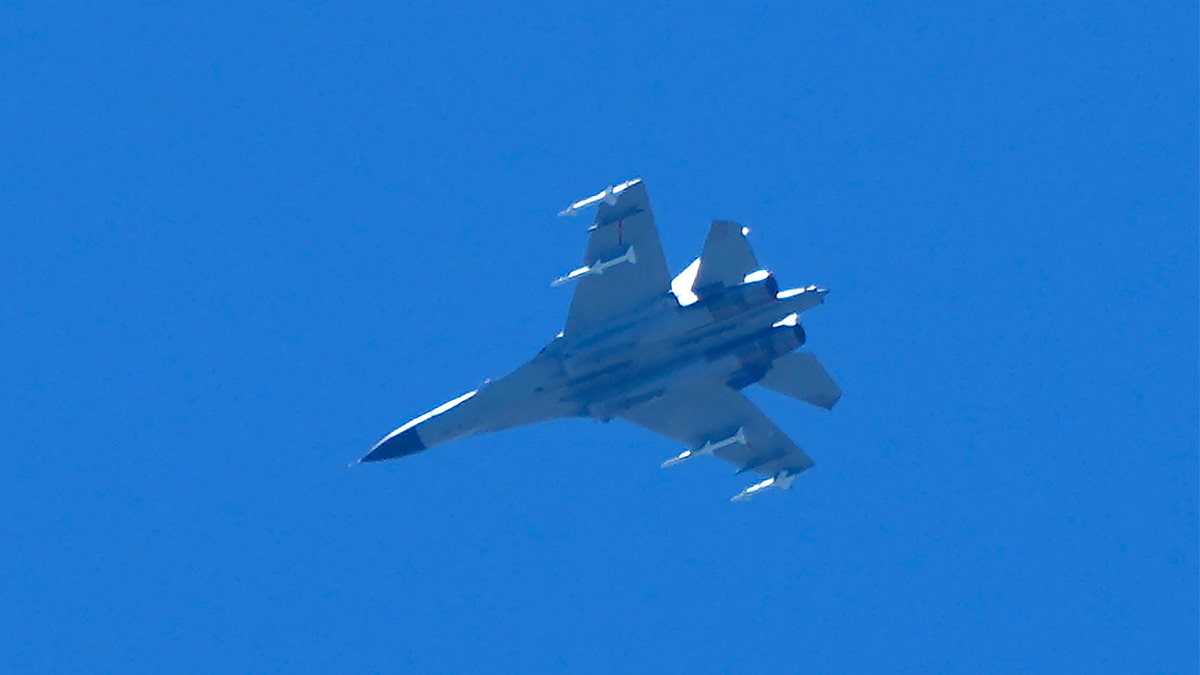
A fighter jet flies in the direction of Taiwan as seen from the 68-nautical-mile scenic spot, the closest point in mainland China to the island of Taiwan, in Pingtan in southeastern China’s Fujian Province Aug. 5, 2022. (AP Photo/Ng Han Guan)
Few China watchers think China picked the day arbitrarily, says Karalekas.
“Beijing has a pattern of testing new leaders of enemy states. They tested Bush with the EP-3E spy plane incident. They tested (then-Japanese prime minister) Naoto Kan with the Senkaku boat collision. We can expect them to test Lai by creating some sort of mini-crisis around the time he takes office on May 20.”
“I think China is really ramping up threats,” Eric Hsu told Fox News Digital. Hsu lives in southern Taiwan’s biggest city, Kaohsiung, has worked on historical restoration projects and hosts a podcast on Taiwan history.
He says he isn’t only worried about military hardware, but also what he termed, “brainwashing videos and moves by KOLs,” (Key Opinion Leaders, a term used to describe internet influencers).
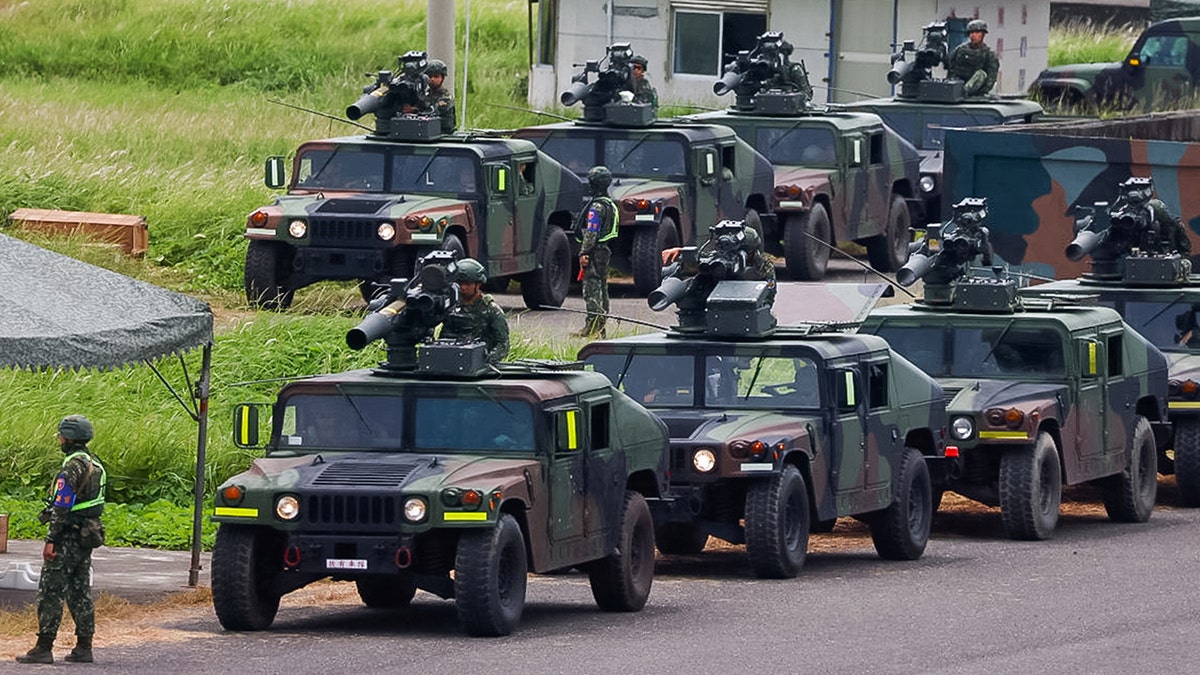
Military vehicles equipped with a U.S.-made TOW 2A missile during a live fire drill in Pingtung, Taiwan, July 3, 2023. (REUTERS/Ann Wang)
Hsu places much of the blame at the feet of local opposition parties seen by many as more friendly to Beijing. Describing the current domestic political situation, he said Taiwan faces “not just an enemy at the gate, but also enemies within.” South Taiwan is a DPP stronghold, but not everyone in the south agrees that the opposition parties are the problem.
Another resident of Kaohsiung, a self-employed businessperson and mother, Ms. Lin, thinks the DPP hasn’t been sincere in reaching out to China.
“They’ve had eight years, and now they will get at least another four,” Lin told Fox News Digital. “What Taiwan needs are brave leaders, people willing to try new solutions, and I don’t see any such people in the current DPP leadership.”
TAIWAN PRESIDENT-ELECT CHOOSES NEW FOREIGN, DEFENSE MINISTERS AS CHINA ANNEXATION THREATS INTENSIFY
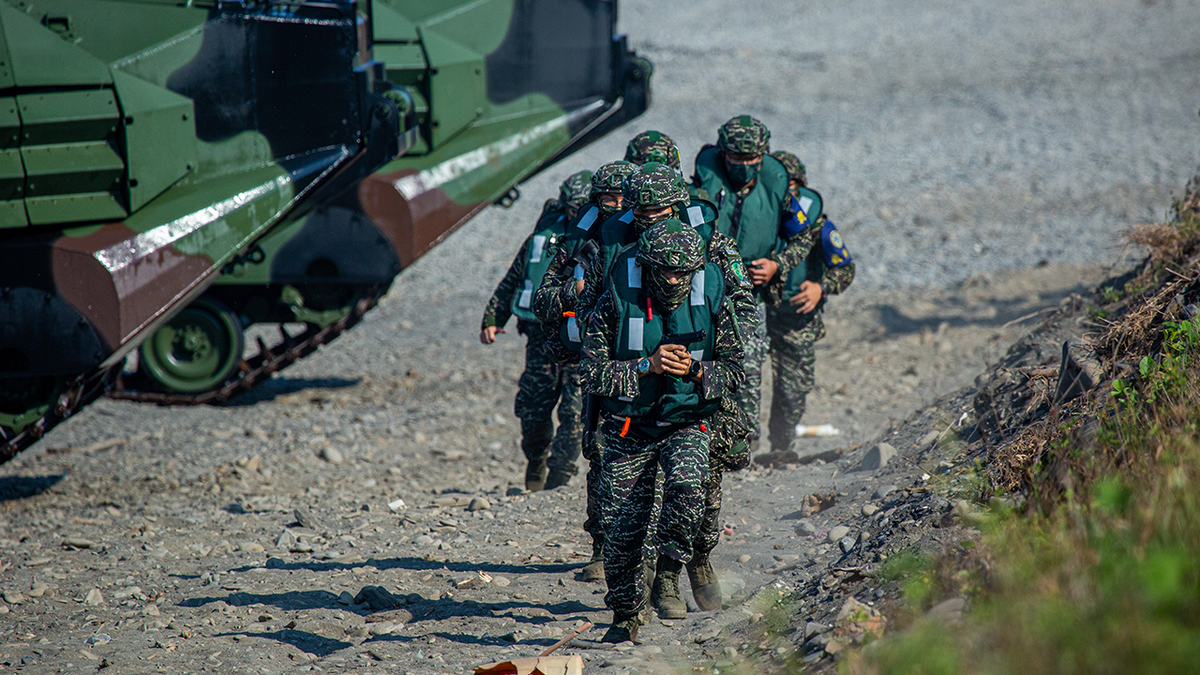
Soldiers disembark from AAV7 amphibious assault vehicles during the Han Kuang military exercise, which simulates the China’s People’s Liberation Army invading the island July 28, 2022 in Pingtung, Taiwan. (Annabelle Chih/Getty Images)
The main opposition party, the Kuomintang (KMT), denies it is “China-friendly” and instead says it is “peace-friendly.” Chinese dictator Xi Jinping has met with the KMT’s Ma Ying-jeou twice, first in Singapore in 2015 when Ma was in office as ROC (Taiwan) president. It was the first time since the end of WWII top leaders from China and Taiwan sat in the same room. Each side in 2015 chose to ignore official titles and address each other as “Mr. Xi” and “Mr. Ma.” On April 10,, “Mr. Xi” and former Taiwan president “Mr. Ma” met again, this time in Beijing.
Some experts see such meetings between the KMT and China favorably, arguing that any dialogue is good and – if nothing else – provides a way for China to save face as it continues its policy of mandatory “reunification,” which China now says may need to be achieved by force. Others in Taiwan and abroad see Ma’s meetings as straying far too close to an acceptance of the idea that Taiwan is a part of China.
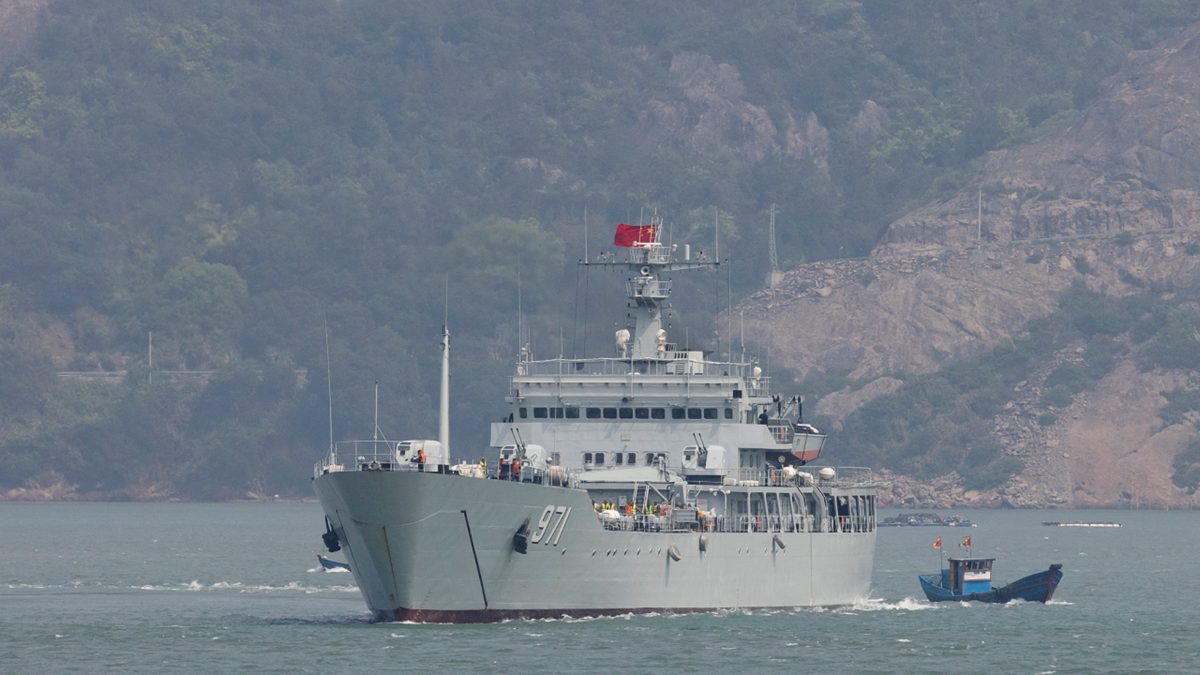
A Chinese warship sails during a military drill near the Taiwan-controlled Matsu Islands near the Chinese coast April 8. (Reuters/Thomas Peter)
As it stands, the ruling DPP says it’s content with the status quo, including keeping Taiwan’s official name, the Republic of China. The KMT is generally more in favor of talks with Beijing under a mutual respect “consensus” idea that boils down to agreeing that both sides are “China,” but each side is free to interpret what this “one China” means.
The problem with the KMT’s thinking, central Taiwan-based newspaper columnist and political commentator Michael Turton told Fox News Digital, is that “Xi’s goal is the complete subjugation of Taiwan, just like Hong Kong. Two of China’s ambassadors abroad have already indicated that Taiwanese opposed to Beijing rule will be shipped off to concentration camps. Given this goal, how can there ever be dialogue with mutual respect?”
World
Brussels, my love? Champage cracked open to celebrate the Big Bang

In this edition, we zoom in on dwindling press freedom in Europe and check how Europe is doing 20 years after the big bang enlargement.
This week, we are joined by Olena Abramovych, Brussels correspondent for Ukrainian TV, Ricardo Borges de Castro, analyst in European and global affairs and Polish journalist Dorota Bawolek.
Panelists reflect on the big bang enlargement of the European Union that took place 20 years ago when leaders of 10 new countries presented their flags to Pat Cox, then president of the European Parliament. Despite the bumps along the way, the panel agreed it was a success.
“Even though you can say that the story has not always be rosy, over the past 20 years it has been a great story”, Ricardo Borges de Castro said.
The panel also marked International Press Freedom Day by focusing on the dwindling press freedom in the EU.
“It is very worrying and at the same time, unfortunately, not very surprising”, said Dorota Bawolek, who suffered attacks both online and offline for her reporting, and experienced censorship.
“Democracy in Europe is not living its best days at the moment. And media and media freedom is one of the victims of it”, she said.
Watch “Brussels, my love?” in the player above.
-

 News1 week ago
News1 week agoLarry Webb’s deathbed confession solves 2000 cold case murder of Susan and Natasha Carter, 10, whose remains were found hours after he died
-

 News1 week ago
News1 week agoFirst cargo ship passes through new channel since Baltimore bridge collapse
-

 World1 week ago
World1 week agoHaiti Prime Minister Ariel Henry resigns, transitional council takes power
-

 World1 week ago
World1 week agoSpanish PM Pedro Sanchez suspends public duties to 'reflect'
-

 World1 week ago
World1 week agoUS secretly sent long-range ATACMS weapons to Ukraine
-

 Movie Reviews1 week ago
Movie Reviews1 week agoHumane (2024) – Movie Review
-

 News1 week ago
News1 week agoAmerican Airlines passenger alleges discrimination over use of first-class restroom
-

 Education1 week ago
Education1 week agoVideo: Johnson Condemns Pro-Palestinian Protests at Columbia University





